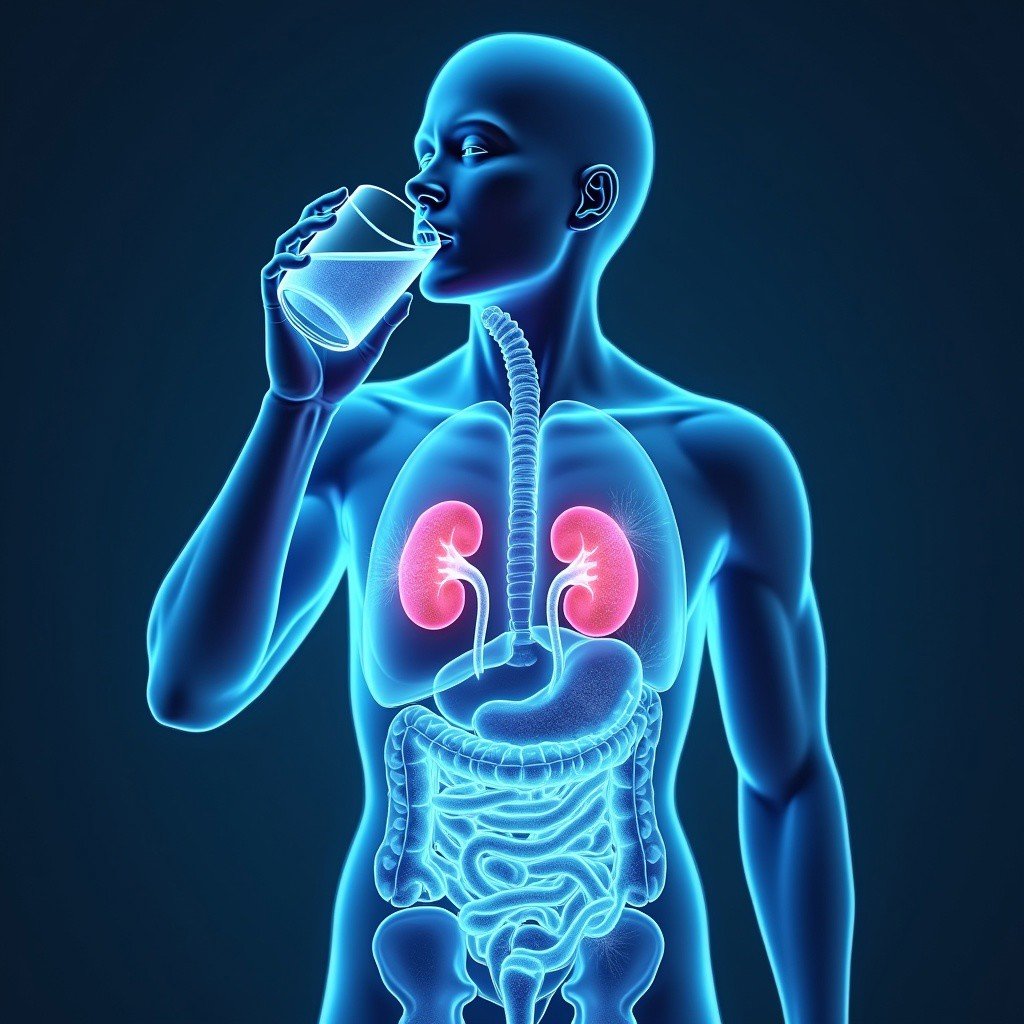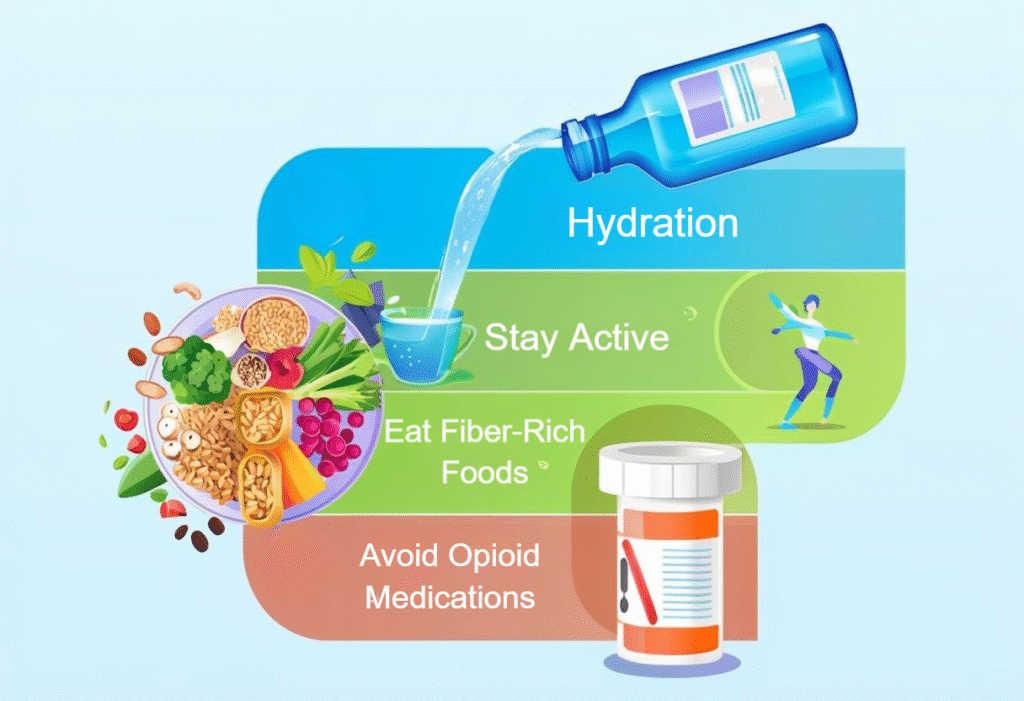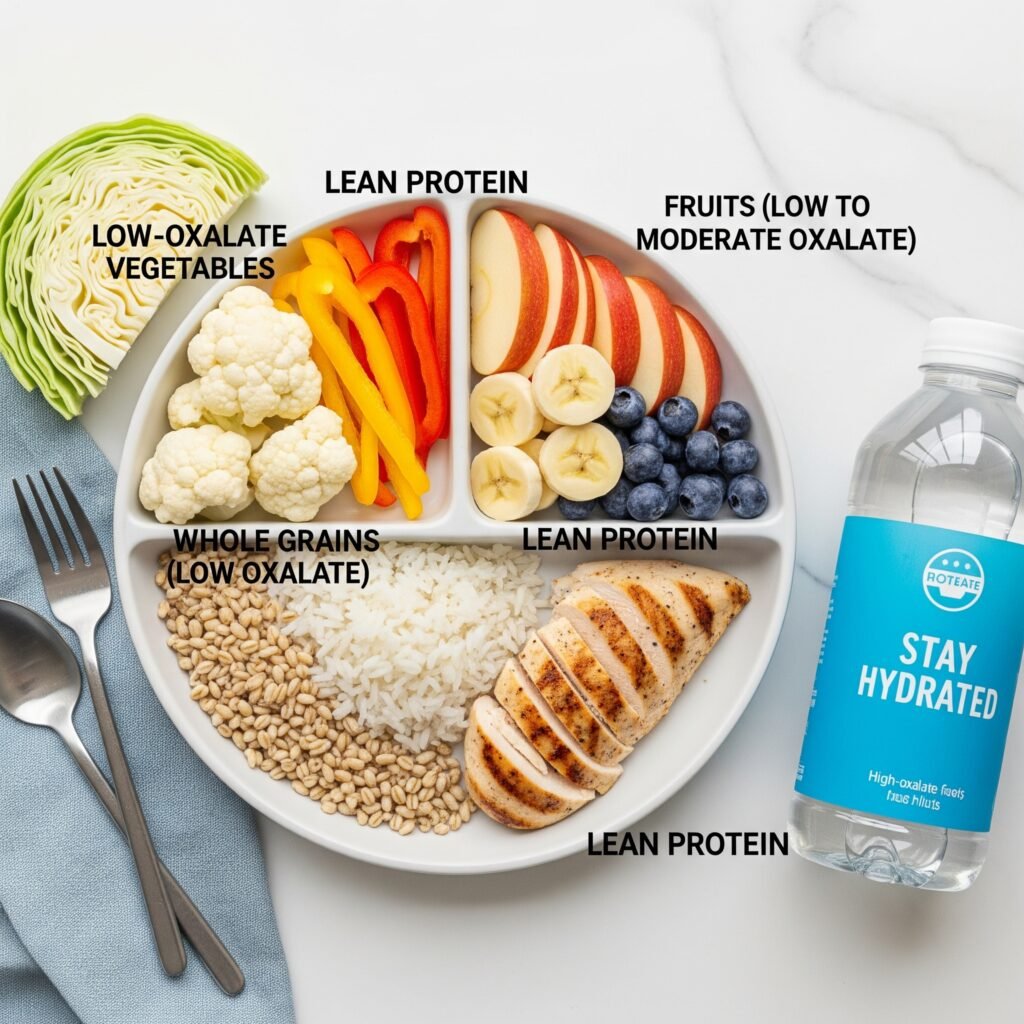Introduction
Kidney stones are known for their excruciating pain and discomfort If you have dealt with one before, you probably understand all too well the sharp, stabbing pain that can strike unexpectedly. At Health and Wellness, we’re committed to delivering expert-backed insights, revealing what many don’t know: kidney stones can also impact your digestive health. Specifically, can kidney stones cause constipation? You may be shocked, but the answer is more common than you might think.
Table of Contents
In this article, we explore this question, examining how the link affects your digestive health, what can be done to manage both conditions, and how to prevent them in the future. Understanding this connection is essential, but remember, this information is for educational purposes and should not replace personalized advice from your healthcare provider for a plan tailored to your needs.
How Do Kidney Stones Affect Digestion?

Imagine tiny crystals of minerals and salts forming in your urine; that’s essentially what kidney stones are, and they can cause significant pain. While the primary concern with kidney stones is the urinary system, there are several other body systems that they can disrupt, one being the digestive system.
Severe Pain and Its Impact on Digestion
Many patients ask the question, ‘Can kidney stones cause constipation?’ as the severe pain sometimes disrupts normal bowel movements. The movement of kidney stones through the urinary tract and ureters is often associated with excruciating pain. This pain can be so debilitating that it impedes normal digestion, resulting in gastrointestinal distress like nausea and vomiting. The broad response of the body to pain includes an accompanying feeling of nausea and vomiting, which tends to slow down the digestive process, often leading to constipation issues.
Dehydration
Chronic dehydration significantly raises the risk of kidney stones. When the body lacks adequate fluids, minerals like calcium and oxalate accumulate in concentrated urine, crystallizing into stones. The National Kidney Foundation highlights that low water intake is a leading preventable cause of stone formation
Inadequate hydration reduces the colon’s capacity to soften stools. Without enough water, the colon absorbs excess fluid from waste, leading to dry, hard stools that are difficult to pass. This raises the question, Can Kidney Stones Cause Constipation, especially when dehydration leads to harder stools? The Mayo Clinic identifies dehydration as a key contributor to constipation
Medications
For kidney stones, pain is often managed with opioids, which, unfortunately, can lead to constipation. These medications decrease the activity of the gastrointestinal tract, which may result in faeces being retained in the colon. If you have been prescribed opioids, discuss the possibility of using stool-softening medications or laxatives with your doctor.
Does Kidney Stone Pain Cause Constipation?
Yes, constipation can be a result of kidney stone pain, but it is not always related. Here are some reasons how:
• Reduced Physical Activity: Many people severely restrict movement due to intense pain, and less movement translates to slower bowel movements.
• Stress Response: The jerked and tensed muscles from pain can trigger stressors to release hormones like cortisol and adrenaline, which can decelerate digestion and thus result in constipation.
• Dietary Changes: Having a lower appetite due to kidney stone pain may lead to low fiber and water drinking, causing constipation.
Symptoms of Constipation Caused by Kidney Stones
When suffering from constipation induced by kidney stones, here are some symptoms you are likely to experience:
• Bowel motions that are difficult to manage or occur less often
• Feeling discomfort or swelling in the stomach
• Pain that radiates from the lower back to the sides close to the kidneys
• Difficulty while attempting to pass stool from the bowels
• Painful, hard stools that may cause tearing or discomfort
If these symptoms persist, consult your doctor to rule out other health issues and create a personalized treatment plan.
Practical Tips to Manage Constipation When You Have Kidney Stones
Taking proactive steps to manage both kidney stones and constipation can significantly improve your quality of life. However, learning how to manage these two conditions simultaneously can offer relief. Consider the following techniques to manage both conditions effectively:
Stay Hydrated
Drink 8-10 glasses of water everyday to stay hydrated and avoid kidney stones. If you’re prone to stones, your doctor may recommend increasing this to 12–13 glasses to dilute urine and reduce mineral buildup. Avoid sugary beverages and excessive caffeine, since they might dehydrate you.

Increase Fiber Intake
Incorporate fiber-rich foods like whole grains (oatmeal, brown rice), fruits (apples, pears), vegetables (broccoli, carrots), and legumes (lentils, beans) into your diet. Try to consume around 25 to 30 grams of dietary fiber daily, increasing the amount slowly to help minimize the chances of bloating. For a structured approach to kidney-friendly fiber intake, explore our 7 Day Meal Plan for Kidney Disease: Stages 3, 4 & Vegetarian Options, which includes low-oxalate, high-fiber foods tailored for kidney health.
Note: If you are following a certain diet for managing kidney stones, such as low oxalate or low calcium, make sure you work with a dietitian for the proper amount of balance with fiber
Engage in Light Physical Activity
Light physical activity, such as walking for 10–15 minutes a day, can help stimulate digestion and improve bowel movements. If kidney stone pain limits your mobility, consult your doctor for safe exercise recommendations tailored to your condition.
Avoid Constipation-Inducing Medications
If you’re prescribed opioids for kidney stone pain, ask your doctor about alternatives like nonsteroidal anti-inflammatory drugs (NSAIDs) or adjunct therapies such as heat pads or acupuncture. If opioids are necessary, discuss using stool softeners or laxatives to counteract constipation.
Consider over-the-counter stool softeners
For mild constipation, you can try over-the-counter stool softeners like docusate sodium (Colace) or osmotic laxatives such as polyethylene glycol (Miralax). These function by drawing water into the stool, making it easier to pass. However, always consult your doctor before using any medication, especially if you’re already taking opioids or other treatments for kidney stones.

Can Kidney Stones Cause Diarrhea? Exploring Other Digestive Effects
Although kidney stones are typically linked to constipation, some patients wonder, can kidney stones cause diarrhea? While diarrhea isn’t common, it can occur indirectly. For example, pain medications like opioids may disrupt normal gut function, and complications such as infections or dehydration can upset your digestive balance. Despite this, constipation remains the primary issue. If you experience persistent diarrhea alongside other symptoms, consult your healthcare provider.
How to Prevent Kidney Stones and Constipation
Kidney stones can be prevented alongside the risks of constipation. For those who tend to develop kidney stones, here are some steps to take.
Stay Hydrated
Ensure proper hydration. Fluid intake assists in diluting urinary substances contained in urine, preventing stone formation while also ensuring that the stool remains soft. Soft stool is easy to expel from the body.
Watch Your Sodium and Sugar Intake
Limit sodium to less than 2,300 mg per day (about one teaspoon of salt) to reduce calcium excretion in urine. Reducing added sugars is beneficial for overall health and may help prevent calcium oxalate stones indirectly. Prefer whole, unprocessed foods over processed foods. Give preference to vegetables, food having lean proteins, and fresh fruits.
Limit Animal Protein
Reduce intake of animal proteins like red meat, poultry, and seafood, as they can increase uric acid levels and lead to uric acid stones. Rather, choose plant-based proteins like quinoa, lentils, beans, and tofu.. Aim for a balanced diet that supports both kidney and digestive health.
Consult a Dietitian
In the event that a person has previously had kidney stones. In that case, a dietitian will be able to formulate a diet to alleviate the chances of kidney stones reappearing while assisting the digestive tract.

General Advice from Medical Professionals
Urologists emphasize appropriate water intake and a balanced diet when managing kidney stones and constipation. For example, urologists tend to recommend the following best practices:
• Hydration: Greatly increasing water intake prevents the formation of kidney stones while simultaneously aiding in softening stool to avoid constipation.
• Diet: Eating a diet low in processed foods while high in fiber supports kidney and bowel function.
• Medication: For those who require opioids for pain control, adjunct measures such as stool softeners or laxatives might be required to deal with the drugs’ constipating side effects.
It is important to remember that these recommendations are best practice approaches, and always follow a healthcare provider’s tailored advice.
Conclusion: Can Kidney Stones Cause Constipation?
To summarize, kidney stones can play a role in constipation alongside a plethora of other factors. While the association may be less direct in terms of pain, medication, and dehydration, finding ways to manage both issues is crucial to avoid further complications. Being hydrated, consuming a fiber-dense diet, maintaining an active lifestyle, and speaking to your physician regarding pain management will help lead patients towards relief.
If your challenges include managing both kidney stones and constipation, it is vital to consult your physician to develop a plan that tackles both concerns. Taking action sooner rather than later will lead to improvement of symptoms in a shorter timeframe.
Ultimately, understanding Can Kidney Stones Cause Constipation is crucial for managing both conditions effectively and improving your quality of life.
Expert Opinion on the Link Between Kidney Stones and Constipation
Dr. Hena Ansari, MBBS, MD, Associate Professor, Jawaharlal Nehru Medical College, AMU
As a medical professional with over 18 years of experience, I often see patients with kidney stones grappling with digestive issues like constipation. Kidney stones can indirectly cause constipation through multiple pathways: severe pain reduces physical activity, slowing bowel motility; dehydration, a key risk factor for stone formation, hardens stools; and opioid medications for pain relief suppress gastrointestinal function. For example, patients with calcium oxalate stones are particularly prone to dehydration-related constipation, as low fluid intake concentrates urine and dries out stools.
To manage this, I recommend drinking at least 2.5–3 liters of water daily to dilute urine and soften stools, alongside 25–30 grams of dietary fiber from low-oxalate sources like apples or broccoli. Light activities, such as walking, can also stimulate digestion. However, dietary adjustments must be tailored to the stone type—calcium, uric acid, or struvite—as oxalate or purine restrictions vary. Always consult a urologist or dietitian to develop a personalized plan, as untreated constipation can exacerbate discomfort and complicate kidney stone management
Frequently Asked Questions (FAQs)
Can kidney stones cause diarrhea instead of constipation?
While many wonder, ‘Can Kidney Stones Cause Constipation or Even diarrhea?’, the evidence shows that constipation is more commonly associated with kidney stones. Constipation is a more frequent gastrointestinal issue linked to kidney stones, but diarrhea can occasionally occur due to the stress and pain caused by the condition. This is not a direct symptom but rather a secondary effect, possibly triggered by the body’s response to severe pain or inflammation. For example, sources like Healthline and Verywell Health suggest that kidney stones can lead to gastrointestinal symptoms, including diarrhea, though it’s less common than constipation.
How long does constipation last with kidney stones?
As long as the causes of constipation (dehydration, pain, medication) exist, constipation will also exist. With dietary and hydration improvement, most people see relief within days, though times vary.
Are there specific foods to avoid during kidney stones?
Yes, you should minimize or better avoid foods like nuts, chocolate, spinach and beets that have a high sodium and oxalate content. You should follow a diet plan provided by your dietician based on the stone type.
Are citrus fruits bad for kidney stones?
No, citrus fruits like lemons and oranges are actually beneficial for kidney stone prevention. They contain citrate, which helps prevent the formation of calcium oxalate stones. However, always consult your doctor or dietitian to tailor your diet to your specific condition.
Can constipation make kidney stones worse?
Constipation does not directly cause the stones, but may worsen the discomfort and make it more difficult to deal with symptoms.
Interactive Tools: Quiz & Poll
Take the QUIZ
Quiz Results Interpretation:
✅ Mostly High-Risk Answers: You may be at a high risk of developing kidney stones. Consider reducing oxalate-rich foods, cutting back on sodium, drinking more water, and consulting a doctor for further evaluation.
✅ Mostly Moderate-Risk Answers: You have some risk factors, but with better hydration and dietary adjustments, you can lower your chances of developing kidney stones.
✅ Mostly Low-Risk Answers: Great job! Your habits are kidney-friendly. Keep up the hydration and maintain a balanced diet to stay stone-free.
Poll
Call-to-Action
Thanks for reading! Share your experiences with kidney stones and constipation in the comments below.
Reviewed by Dr. Hena Ansari, MBBS, MD
This content has been medically reviewed for accuracy and reliability by Dr. Hena Ansari, Associate Professor at Jawaharlal Nehru Medical College, Aligarh Muslim University (AMU), India. With over 18 years of teaching experience in medical science, Dr. Hena has provided expert insights to ensure that the information aligns with current clinical guidelines.
About the Author – Mohammad Faisal Khan
Mohammad Faisal Khan is the founder and chief editor of Health and Wellness (hwvibes.com), a platform dedicated to providing well-researched, informative content on health and wellness. With a deep interest in holistic health, fitness, and disease prevention, Faisal curates expert-backed articles to help readers make informed decisions about their well-being. Every article is vetted by medical professionals to ensure the highest standards of trust and accuracy. While not a medical professional, Faisal relies on reliable sources like the Mayo Clinic, WHO, CDC, and NIH to deliver credible content. His mission is to simplify complex health topics, making them accessible to a broader audience. Reach out at contact@hwvibes.com for inquiries or feedback
For inquiries, collaborations, or feedback, feel free to reach out at contact@hwvibes.com.
Medical Disclaimer:
Content on this website is for informational purposes only and is not a substitute for professional medical advise, diagnosis, or treatment. Always seek the advice of your physician or qualified healthcare provider with any questions you may have regarding a medical condition. See full disclaimer here.


